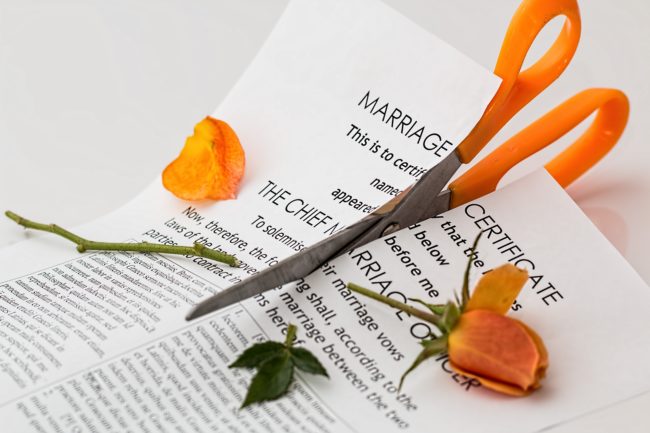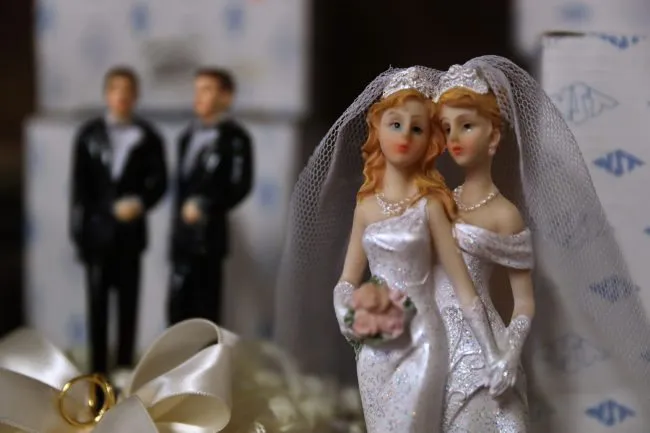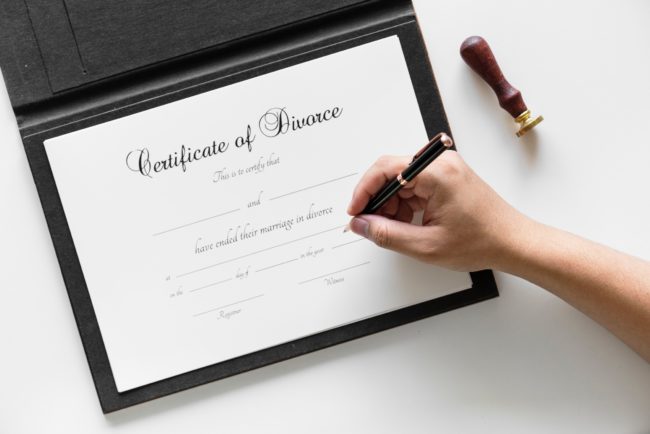Could no-fault divorce become legal? Woman fights to legalise ‘no blame’ divorce

(Creative Commons)
A woman fighting to end her “loveless” marriage could pave the way for ‘no blame’ divorces to be legalised in the UK.
Tini Owens, 66, who has been fighting to end her marriage since 2015, will launch a Supreme Court battle today that could introduce ‘no-fault’ divorce clause.
Although Owens has wanted a divorce since 2015, her husband, 78, has legally contested her divorce filing, insisting that they “still have a few years of old age together,” reported The Guardian.

This makes Owens’ husband part of the one percent of people who have legally contested their partner filing for divorce.
The case may be unusual, but it could result in a more amicable reason for married couples to end their relationship.
As it stands, there are five reasons why couples in the UK can divorce – and they all require one member of the party taking the blame.

(Photo by Justin Sullivan/Getty Images)
Under the Matrimonial Causes Act 1973 in England and Wales, if one party can provide adultery, unreasonable behaviour or desertion, then the marriage can be terminated.
Divorce campaigners have welcomed the move, and hope that it will provide a more amicable end to a marriage.
“When you apply for a divorce, you must prove your marriage has broken down and give one of the following five reasons – adultery, unreasonable behaviour, desertion, you have lived apart from more than two years and both agree to the divorce or you have lived apart for at least five years.
“The majority of divorce petitions in England and Wales are not contested.
“However, in this case, the husband defended the petition, stating he wasn’t convinced the marriage had broken down, even though there was no way their relationship was going to be reconciled,” said solicitor Kelvin Henderson to PinkNews.
“The Supreme Court will look at how the court, as a matter of law, should approach unreasonable behaviour petitions.
“Only Parliament can change the law to permit no-fault divorce, so this case won’t change the procedure to get a divorce but it has already highlighted the serious shortcomings of the procedure in today’s world,” he added.
“This is a matter of allowing people to come out of a marriage with more dignity, it’s about making it more kinder, not easier.”
They can divorce after two years of separation with mutual consent, or five years separation with no consent required.

Recent ONS figures revealed that lesbian couples are two and a half times more likely to get a divorce, reported The Independent.
In 2016, a total of 87 same-sex female partnerships ended in divorce, while 25 same-sex marriages between men broke down.
American Christian publication Christian Today argued that couples should stay in unhappy marriages because it is “rarely permanent.”
“Unhappiness is rarely permanent. Given time, most couples emerge from periods of unhappiness,” they wrote.
“Previous American research that looked at this has found that people either work at it, go on a marriage course, change their attitude or change their circumstances. Either way, most find happiness. That’s good news for them and for their children.”

Kevin McGee and Matt Lucas are one of the high-profile gay couples who have divorced (Getty)
However, the number of same-sex couples ending their relationship is comparatively small.
Another 106,959 heterosexual couples divorced in the same year.

